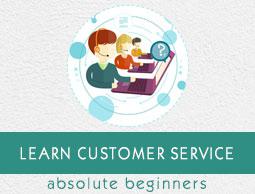Customer Service - Introduction
Customer is the king because he keeps every business afloat. Whether an organization offers a product or service, it cannot remain in business if it cannot find a group of people willing to become its customers. In this tutorial, we will discuss how we can keep every customer − existing or potential − happy and satisfied so that business flourishes.
Who Are Customers?
Anyone who is provided with a good, product, service or idea is a customer. Financial transactions may or may not be a part of this provision, which brings us to the two types of customers −
- Internal Customers
- External Customers
Internal Customers
A customer directly connected with the organization is called an internal customer. Usually, internal customer is part of the organization, like stakeholders, employees, departments or shareholders.
For example, every product has a user manual or user instructions associated with it. To develop these a content development team or department is created, which has to provide the material to the packaging department. Now packaging department would be the internal customer of the content development team.
External Customers
A customer who is external to the organization is called an external customer. For example, anyone buying a refrigerator, designer suit or software is a customer of the company manufacturing it.
The concept of internal customers was introduced in 1988 by Joseph M Juran, a quality management writer. Since then this concept has become essential to ensuring organization wide total quality management. It is also believed that an organization that is able to satisfy its internal customers is better equipped to satisfy external customers.
What Is Customer Service?
Taking care of a customer’s needs and solving their problems is called customer service. Customer service begins the moment you connect with the customer to fulfill his needs and continues even after the requirements are met. The services might be required before, during and after the customer purchases a product or service.

Customer Service Characteristics
A high quality customer service can be provided by incorporating these characteristics −
Being prompt − Whatever service or product you have promised the customer, be punctual in its fulfilment. Changes or cancellations later in the day can be harmful to you and your organization’s reputation.
Knowing your P’s and Q’s − You must be polite to your customer all the time. Besides the opening and closing greetings, dot your conversation with please, sir, thank you or sorry liberally. Display your best behavior to every customer.
Being professional − Show empathy for your customer’s problems while respecting them. Never make them feel demeaned because they have a problem they cannot solve by themselves.
Striking a personal chord − You should try to establish a personal equation with the customer. A personal touch like calling the customer by name can earn you his loyalty.
Listening attentively − Never interrupt the customer when he is explaining his requirement. Make a note of salient points and request for clarifications later.
Asking right questions − If you have listened to the customer requirements attentively and you have thorough knowledge of your product or service, you should be able to ask the right questions that will help you in meeting customer needs.
Taking responsibility − You should feel personally responsible for solving the customer’s queries. Never assume that you are just a representative of the team and hence onus of the service lies with the whole team.
Good Customer Service Department
Anyone providing customer service can only be as good as the supporting team or department. It is essential to have a good customer service department to provide world class service. These are some of the features of a good customer service department.
Repository of customer problems − Every customer service department should have a list of customer FAQs as well as most recurrent problems. Care should be taken to update it periodically with latest queries and requests.
Clear-cut procedures − Procedures for recording customer request and steps taken to solve them must be laid down unambiguously.
Robust customer service tracking program − The software being used to track service requests should record, process and make available all requests to all the team members. This will enable seamless service even in absence of any team member. Software should also be able to analyse requests and create reports.
Intensive training program − Customer service team members should have continuous training after the initial induction to keep them up-to-date with products and services as well as customer request trends.
Who Are Customer Service Providers?
Any person, department or organization that takes customer requests, processes them, addresses their concerns, solves problems and acts as an interface on behalf of the company is called a customer service provider.
Customer service providers may be of these categories −
In-house providers − Small companies can have in-house employees to take care of customer needs. Care should be taken so that service standard do not go down due to lack of dedicated resources.
Third party providers − Big organizations usually outsource their customer service to companies that specialize in it. The processes followed by the outsourced company is subject to close monitoring by the principal company.
Independent providers − People or firm who provide customer service through their own methods without any supervision are called independent providers. Employing independent customer service providers is a hassle-free way of outsourcing customer service function.
Whatever the type of customer service provider, these are some common characteristics they must have to provide high-quality service −
Commitment to provide high quality customer service should be part of mission statement.
Everyone should have measurable customer service goals.
Regular feedbacks from customers must be taken and their suggestions incorporated.
Recurring customer problems must be identified and fixed, if possible.
It is always advisable that the higher management solicits suggestions from customer-facing employees to improve customer experience.



